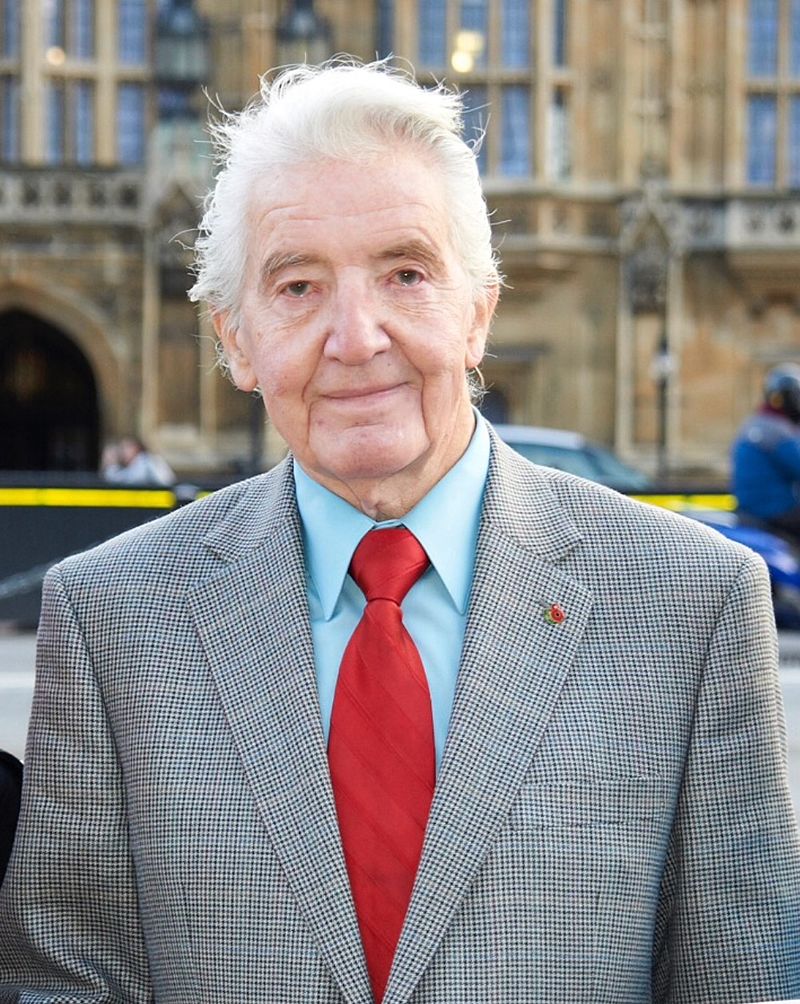Mansfield and NE Derbyshire analysis
By Annie Parkin
Mansfield had been a Labour seat for ninety four years until this year when it was lost by Sir Alan Meale. After just scraping in at the 1987 election, Meale increased his majorities at each election. Now, after 30 years as an MP, he lost his seat despite gaining a higher vote and increasing his share of the vote. It was thought that he had intended to stand down at the next General Election, but Theresa May’s sudden election call threw the intentions of a number of MPs into confusion.
Alan Meale had done plenty of work to support former miners in various campaigns including the Mineworkers’ Pension Scheme, which had been underwritten by the Government after privatisation of the industry. In order to compensate itself for the “risk” this presented, the government chose to cream off vast amounts of money that should have been paid to former mineworkers in pensions.
Despite his hard work, Alan Meale had not been publicising his efforts effectively, so they went largely unnoticed. Previously he had passed up opportunities to write in the widely-read local newspaper. When he finally began to write a column he failed to tell people about the valuable work he was doing, so he was often thought to be inactive.
In the 2015 General Election the Labour majority in Mansfield was 5315, with Conservatives second. The 2017 vote was 23,392 for the Tories and 22,335 for Labour, giving the Conservatives a majority of 1057. Although Mansfield had been a mining and manufacturing town, the old industries were closed down, leaving many former manual workers unemployed, with very little money and in poor health.
This is the sort of environment identified by the Joseph Rowntree Trust as leading to Brexit majorities in the EU Referendum, where low levels of formal education or a depressed local economy and environment seemed to lead to disaffection or despair. In Mansfield the Brexit vote was one of the highest in the country at 70.9%, while Alan Meale was known as a Remainer.
In the 2015 General Election the UKIP vote in Mansfield had been only 1438 less than the Conservative vote. When the UKIP vote, in line with the national trend, collapsed in this year’s General Election, UKIP lost more than 9000 votes there. It is believed that many former UKIP voters voted Conservative in Mansfield this time.
This pattern differed from events in the neighbouring Ashfield seat, where the Referendum Leave vote was almost as high, but Labour MP Gloria de Piero hung on by a whisker in this year’s General Election. A former Remainer, she seemed to shift position once the size of the Leave vote in her seat was known. The most important factor, though, in enabling Labour to hold Ashfield was probably the existence of a very right-wing Independent candidate in Ashfield. As a local councillor, already known to the electorate, she seemed to split the right-wing vote, while in Mansfield right-wing voters had only one choice: Conservative.
The Conservative national leadership chose Mansfield as one of their target seats in this year’s General Election, pouring resources into the constituency. Mansfield District Council has been controlled by Independents since 2015 while two Independent elected executive mayors have been in power during the last 14 years.
During the 1984-5 Miners’ Strike some leaders within the Nottinghamshire NUM, colluding with the Government, had fatally undermined the strike. Afterwards, when they formed the breakaway Union of Democratic Miners, our judicial system gifted them the former NUM Offices in Mansfield. Following the extinction of Britain’s mining industry these offices have now been sold by the UDM to developers who, after demolishing the Miners Offices, are building large and very expensive houses on the site. This of course is helping to change the social and class make-up of the town, attracting affluent commuter residents who may be more likely to vote Conservative. There are still many areas of high social deprivation in Mansfield whose residents may be less likely to vote at all, given the dramatic decline of the organised working class since the mid 1980’s.
NORTH EAST DERBYSHIRE
Last held by Labour’s Natascha Engel, this too had been a Labour seat for many years, with many previous MPs having had close links with the National Union of Mineworkers, as there had been many collieries within the constituency. In this year’s General Election Natascha Engel increased her share of the vote by 2.9%, to 43.5% of the vote, but the Conservative Lee Rowley increased his share by 12.5%, winning 49.2% of the vote. He gained 24,784 votes, while Ms Engel’s vote was 21,923 .
Rowley had stood previously in 2015, coming less than 2000 votes behind Natascha Engel. In this constituency too, in line with the national trend, the UKIP vote collapsed. In North East Derbyshire, Conservative was the only voting option for right-wing voters. Again in line with the national picture, Conservative and Labour dominated the voting pattern.
The constituency is very mixed in several ways. Geographically It curls around the Chesterfield constituency, with its northern parts bordering Rotherham and Sheffield, while also stretching southwards down towards the very different environment of mid Derbyshire. The social make-up of the constituency is also very mixed, so it is hard to generalise about what happened, a point Natascha Engel herself made after the election. There are affluent villages such as Ashover, Holmesfield and surrounding areas; larger affluent commuter settlements in Dronfield and Wingerworth, but also impoverished former mining villages. where morale is at rock-bottom. The former mining town of Clay Cross also belongs to this constituency.
In former mining areas jobs are often in short supply, while those that are available are usually low-paid. Residents here are less likely to register as electors, or less likely to turn out on the day.
Over time, though, North East Derbyshire is becoming more middle-class, with new housing developments, even in former mining areas such as Clay Cross and Renishaw, attracting commuters. The traditional working-class is in decline here, as in many other areas. Many of these people, who would once have been solid Labour voters, have become disillusioned. Many voted UKIP in 2015 and Leave in the Referendum. Some seemed to vote Tory in the 2017 General Election, while others seemed not to vote at all. However, the Labour vote in the local elections held up in the north of the county this year. Labour lost control of Derbyshire County Council to the Tories only because the middle and south of the county went Tory.
In the General Election there were some particular circumstances and local issues that seemed to influence the outcome in North East Derbyshire. A significant and vigorous anti-fracking campaign is being waged in the northern part of the constituency because INEOS intends to begin operations in the Marsh Lane area of Eckington. For a while before the General Election, Ms Engels’ office displayed an anti-fracking poster, but this later vanished. Immediately after nominations closed, Natasha Engels’ team began to circulate a four-page open letter, supporting fracking but with some possible protections. This letter went inside a local magazine to every house in Dronfield, and was probably distributed in other areas too. At hustings Natascha Engel took this same line, which was basically pro-fracking. Yet previously the Constituency Labour Party had taken an anti-fracking stance at an all-members meeting, in her presence and without any votes against this view. Her change of position on local fracking was probably very damaging to her vote. The successful Conservative candidate issued several leaflets in which he opposed the Marsh Lane proposal, although he was ambiguous about the wider fracking issue.
After the 2015 General Election Natascha Engel had become one of the Deputy Speakers of the House of Commons. This requires incumbents to withdraw from an active political role: Deputy Speakers must not vote in Commons debates. While Lindsay Hoyle, the most senior Deputy Speaker, uses his web-sites and the local media to try to overcome this by associating himself with progressive causes, Natasha Engel was not thought locally to be doing as much as possible in this situation. Some constituents apparently felt dissatisfied with her efforts if they took issues to her. As in Mansfield, some constituents thought that she would not stand again in the next General Election, but the surprise nature of this election gave MPs little time to take decisions, with very little time for parties to select new candidates.
When first elected Ms Engel had moved into a house within the locality, but it appears that was sold some time ago. Recently there had been no clear Constituency Party knowledge of what links she still had with her constituency.
Some campaigners in North East Derbyshire were worried that great efforts were put into the election campaign for Chesterfield’s Toby Perkins, while the North East Derbyshire seat, thought to be much more vulnerable, required more attention. It appears that this was more than just a local issue, as the national Labour leadership, worried by pre-election opinion polls, had decided that they needed to work hard for every seat, rather than putting extra resources into seats at most risk. In fact, Chesterfield’s Labour MP Toby Perkins held Chesterfield this year with a majority of 9605, an improvement on performance in the 2015 General Election.
There have been reports that the national Labour leadership may be willing to target resources on more vulnerable seats next time. However, there may be dangers in this. In the neighbouring Bolsover constituency, where Dennis Skinner has been MP for many years, we see that his majority was halved this year, with a strong performance by a Conservative candidate who came second, despite a split in the right-wing vote. UKIP, although losing many votes in Bolsover since the previous General Election, still polled 2129, so there is cause for concern here.
Many constituencies previously dominated by the organised working class, especially former mining or manufacturing areas, are now utterly changed, with the dramatic decline in work, in trades union presence and morale. In these places of poverty it is becoming much harder to get out a Labour vote. The national Labour Party leadership has, during demonstrations, told trades unionists and campaigning organisations that the Labour Party will support their struggles. Of course this marks an advance, but it will require work by local Labour parties as well as national leadership. In many local Labour parties this change of focus from electoral machine to ongoing campaigning work does not seem to be happening. In North East Derbyshire there is an active Dronfield Labour Party education and discussion group which seems to have played a positive role in the last few years, and seems to be connected to the anti-fracking campaign. However, the geographical spread of the constituency seems to limit the influence of this group.
"During the 1984-85 Miners' Strike some leaders within the Nottinghamshire NUM, colluding with the Government, had fatally undermined the strike. Afterwards, when they formed the breakaway Union of Democratic Miners, our judicial system gifted them the the former NUM offices in Mansfield. Following the extinction of Britain's mining industry these offices have now been sold to developers who, after demolishing the Miners Offices, are building large scale and very expensive houses on the site."

Dennis Skinner MP

"Many constituencies previously dominated by the organised working class, especially former mining or manufacturing areas, are now utterly changed, with the dramatic decline in work, in trades union presence and morale."






